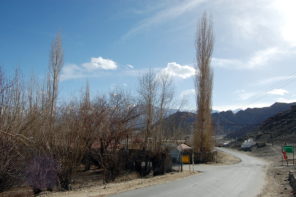Last month our dear podcasting heroes at New Books in Anthropology brought us some truly wonderful interviews. And, ever grateful for their work, this month we have collated for you some of the best. By clicking below, you can hear anthropologists discuss the sounds of Islam, capitalists relations, Islamic finance and contract workers fighting in America’s war zones.
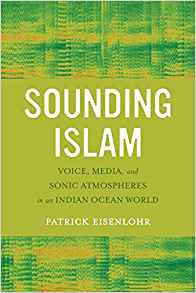
by Patrick Eisenlohr
(University of California Press 2018)
Sounding Islam: Voice, Media, and Sonic Atmospheres in an Indian Ocean World (University of California Press, 2018) by Patrick Eisenlohr is an exciting ethnographic study of Mauritian Muslims’ soundscapes. Through the exploration of na‘t, or devotional poetic recitations that honor the prophet Muhammad, Eisenlohr captures the sensory dimension of Islam, particularly through a linguistic anthropological analysis of performance, poetry, and acoustics. The book situates Mauritian Muslim’ practices and devotions within the context of Islamic piety both across the Indian Ocean but also through a transnational and diasporic lens. In doing so, it highlights the sectarian differences that follow the performance of na‘t within the Muslim world, signaling to the intersubjectivity of Islamic piety. The study challenges scholars of Islam to take sonic atmospheres seriously, especially as it provides key insights into Islamic identity formation, piety, and ritual practices.
Interview by Shobhana Xavier
Listen here!
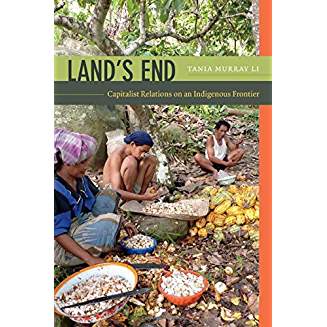
by Tania Li
(Duke University Press 2014)If you want to read just one book to properly understand capitalism, let it be Tania Li’s award-winning 2014 book Land’s End: Capitalist Relations on an Indigenous Frontier (Duke University Press, 2014). This might seem like a strange choice: how can a study of a faraway and possibly exotic indigenous place shed light on “our” own global realities of jobless growth and rising inequality? But it can, and it does.
The book is a masterpiece of social scientific scholarship and critical political praxis. Through a longitudinal ethnography conducted over twenty years, the book follows the consequences of Indonesian highlanders’ fateful decision to plant the booming cash crop of the 1990s, cacao. That decision, Li shows, was the reason that capitalism took root and developed apace in the highlands over the coming decades. All the telltale signs of capitalist relations emerged: land was privatized, commons eroded, classes differentiated, and wealth and poverty co-created. Instead of coming as an imposition from the outside, from the state or transnational corporations, capitalism grew within the highlands, in the intimate spaces between kin and neighbors who had all planted cacao hoping it would lead them to a better life and many of whom instead ran into a dead end — land’s end. The dilemmas and challenges that land’s end brought are explored with care, compassion, and a critical eye in Li’s astonishingly lucid prose.
Interview by Aparna Gopalan
Listen here!
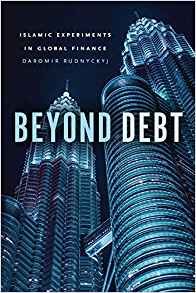
by Daromir Rudnyckyj
(University of Chicago Press 2019)
Recent economic crises have made the centrality of debt, and the instability it creates, increasingly apparent. In Beyond Debt: Islamic Experiments in Global Finance (University of Chicago Press, 2019), anthropologist Daromir Rudnyckyj illustrates how the Malaysian state, led by the central bank, is seeking to make the country’s capital Kuala Lumpur the central node of global financial activity conducted in accordance with Islam. Beyond Debt tracks efforts to re-center international finance in an emergent Islamic global city and, ultimately, to challenge the very foundations of conventional finance.
Interview by Hillary Kaell
Listen here!
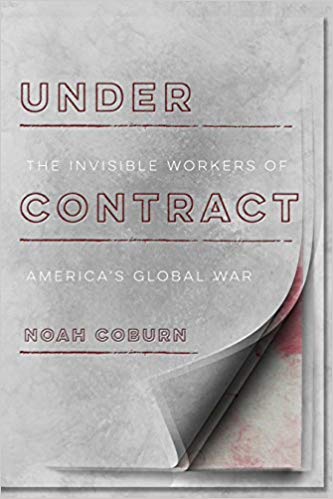
by Noah Coburn
(Stanford University Press 2018)
Noah Coburn‘s Under Contract: The Invisible Workers of America’s Global War (Stanford University Press, 2018) is about the hidden workers of American’s foreign wars: third country nationals who while not serving in their country’s militaries, still work to support the American war effort. These men and women serve as laborers, cooks, logisticians, engineers and security guards. They bear the burden of service in a war zone with the hopes of good pay, but are sometimes, maybe even often, disappointed. Prof Coburn explains in this book how they come to be in America’s wars, why they want to sign on a contract, how America’s government incentivizes and perpetuates the contracting system and what that means for the world both in the present and future.
In our talk, we discussed how Prof. Coburn came to this project, his personal experience in Afghanistan, what it means to be a contractor and how contracts are established as well as what happens to these contractors when they no longer have America’s wars to fight.
Interview by Jeffrey Bristol
Listen here!
Featured image (cropped) by Dennis Sylvester Hurd (flickr, CC BY 2.0)




